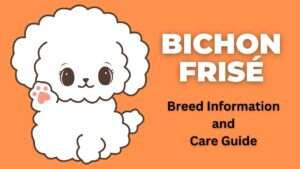Are you ready to dive into the delightful world of Shih Tzus? Picture this: a fluffy ball of fur with a charming personality, captivating eyes, and a history steeped in royalty. Get ready to uncover the secrets, quirks, and irresistible charm of the Shih Tzu dog breed. Let’s embark on an adventure into the heart of these lovable companions!
Contents Overview
Breed Overview of Shih Tzu
- Size: Shih Tzus are small dogs, typically weighing between 9 to 16 pounds and standing 8 to 11 inches tall at the shoulder.
- Appearance: They boast a distinctive look with a flat, wide face, expressive eyes, and a flowing double coat that cascades gracefully to the ground.
- Life Span: With proper care and attention, Shih Tzus enjoy a relatively long life span, ranging from 10 to 18 years, providing years of love and companionship to their owners.
History and Origins of Shih Tzu
- Ancient Beginnings: Originating over 1,000 years ago in ancient China, the Shih Tzu’s history is intertwined with royalty and reverence.
- Tibetan Monks: Bred by Tibetan monks, these dogs were esteemed for their companionship and revered as symbols of good fortune.
- Royal Favor: Shih Tzus found favor among Chinese royalty, who cherished them as prized lapdogs and symbols of wealth and prestige.
- Lineage: The breed’s lineage can be traced to the crossing of the Pekingese and the Lhasa Apso, resulting in the creation of the regal Shih Tzu breed.
- Global Popularity: Today, Shih Tzus continues to enchant hearts worldwide, embodying a legacy of nobility, grace, and companionship.
Temperament and Personality of Shih Tzu:
- Affectionate Nature: Shih Tzus are known for their loving and tender disposition, often forming strong bonds with their owners.
- Playful Demeanor: These dogs have a playful and lively personality, enjoying interactive play sessions and cuddle time with their human companions.
- Courageous Spirit: Despite their small size, Shih Tzus exhibits surprising courage and will fearlessly protect their loved ones when needed.
- Adaptability: Shih Tzus are highly adaptable dogs, able to thrive in various living environments, whether it be in a bustling city or a quiet suburban neighborhood.
- Confident Attitude: With a confident demeanor, Shih Tzus carry themselves with grace and poise, reflecting their regal lineage.
Exercise and Training Needs of Shih Tzu
- Moderate Exercise: While Shih Tzus are not high-energy dogs, they still require regular exercise to stay healthy and happy. Daily walks and playtime in a fenced yard are sufficient to meet their exercise needs.
- Indoor Activities: Due to their small size and adaptability, Shih Tzus can thrive in indoor environments, enjoying interactive games and indoor play sessions.
- Training: Shih Tzus is intelligent but may have a stubborn streak, so consistent and positive reinforcement-based training is essential. Start training early and be patient, as these dogs respond best to gentle guidance and praise.
- Socialization: Early socialization is crucial to help Shih Tzus develop good manners and become well-adjusted companions. Expose them to various people, animals, and environments to prevent shyness or fearfulness.
- Housebreaking: Shih Tzus may be prone to accidents indoors, so crate training and establishing a regular bathroom routine are essential for successful housebreaking.
- Grooming: Regular grooming is necessary to maintain the Shih Tzu’s luxurious coat, including daily brushing to prevent mats and periodic baths. Additionally, routine nail trimming, ear cleaning, and dental care are vital for their overall health and well-being.
Shih Tzu’s Coat: Type and Length
- Double Coat: Shih Tzus has a luxurious double coat consisting of a soft, dense undercoat and a longer, flowing outer coat.
- Silky Texture: Their fur is silky to the touch, adding to their regal appearance and providing insulation against both hot and cold weather.
- Length: The length of a Shih Tzu’s coat can vary, but it typically grows long, often reaching the ground if left untrimmed. Some owners prefer to keep their Shih Tzu’s coat trimmed shorter for easier maintenance.
- Growth Rate: Their coat grows continuously, requiring regular grooming to prevent mats and tangles. Daily brushing and periodic trimming are necessary to keep the coat healthy and manageable.
- Color Variations: Shih Tzus come in a variety of coat colors, including solid shades such as gold, white, and black, and various combinations such as black and white, or tri-color (black, white, and tan).
Grooming and Care for Shih Tzu
- Daily Brushing: Regular brushing is essential to prevent mats and tangles in the Shih Tzu’s long coat. Use a slicker brush or a comb to gently remove knots and distribute natural oils throughout the fur.
- Bathing: Bathe your Shih Tzu every 3-4 weeks using a mild dog shampoo to keep their coat clean and smelling fresh. Be sure to thoroughly rinse out all shampoo to avoid skin irritation.
- Haircuts: Some owners opt for professional grooming every 4-6 weeks to maintain a shorter, more manageable coat length. Alternatively, you can learn to trim your Shih Tzu’s hair at home using clippers and scissors.
- Facial Care: Regularly clean around your Shih Tzu’s eyes to prevent tear stains from forming. Use a damp cloth or specialized pet wipes to gently wipe away any discharge.
- Ear Cleaning: Check your Shih Tzu’s ears weekly for signs of dirt or wax buildup. Clean them with a veterinarian-approved ear-cleaning solution to prevent infections.
- Dental Hygiene: Brush your Shih Tzu’s teeth regularly, ideally every day, to prevent dental issues such as tartar buildup and gum disease. Use a dog-specific toothbrush and toothpaste.
- Nail Trimming: Trim your Shih Tzu’s nails every 2-4 weeks to prevent overgrowth and discomfort. Be cautious not to cut into the quick, which can cause bleeding and pain.
- Routine Veterinary Care: Schedule regular check-ups with your veterinarian to monitor your Shih Tzu’s overall health, vaccinations, and parasite prevention (such as flea and tick control).
Shedding Level of Shih Tzu
- Low Shedding: Shih Tzus are considered a low-shedding breed, making them a suitable option for individuals with allergies or those who prefer a cleaner home environment.
- Continuous Growth: While they don’t shed much, Shih Tzus have a continuously growing coat that requires regular grooming to prevent mats and tangles.
- Minimal Hair Loss: Due to their double coat, Shih Tzus may still experience some hair loss, but it is typically minimal and not as noticeable as breeds with heavier shedding.
- Seasonal Changes: Some Shih Tzus may experience increased shedding during seasonal changes, known as “blowing coat,” but this shedding is still relatively minimal compared to other breeds.
- Regular Grooming: Daily brushing and periodic baths are essential to manage shedding and keep the coat healthy and free from loose hair.
Common Health Issues in Shih Tzu
- Brachycephalic Syndrome: Shih Tzus’ flat faces can lead to breathing difficulties, especially in hot or humid weather, making them prone to heatstroke and respiratory problems.
- Eye Problems: Due to their prominent eyes, Shih Tzus are susceptible to various eye issues, including corneal ulcers, cataracts, and progressive retinal atrophy (PRA).
- Dental Problems: The Shih Tzu’s small jaw and crowded teeth make them prone to dental issues such as tartar buildup, gum disease, and tooth decay.
- Patellar Luxation: This condition, common in small breeds like Shih Tzus, occurs when the kneecap dislocates from its normal position, causing lameness and discomfort.
- Hip Dysplasia: Shih Tzus can develop hip dysplasia, a genetic condition where the hip joint doesn’t develop properly, leading to pain and difficulty moving.
- Allergies: Shih Tzus may suffer from allergies to environmental triggers like pollen, dust, or certain foods, resulting in skin irritation, itching, and ear infections.
- Liver Problems: Some Shih Tzus are prone to liver shunts, a condition where blood bypasses the liver, leading to toxic buildup and potential liver failure.
- Obesity: Due to their small size and fondness for food, Shih Tzus are prone to obesity if not given a balanced diet and regular exercise, which can lead to various health issues.
- Hypothyroidism: Shih Tzus may develop hypothyroidism, a condition where the thyroid gland doesn’t produce enough hormones, resulting in weight gain, lethargy, and skin problems.
- Intervertebral Disc Disease (IVDD): This spinal condition can affect Shih Tzus, causing pain, weakness, and in severe cases, paralysis, particularly in the lower back.
Drooling Level of Shih Tzu
- Low Drooling: Shih Tzus are not known for excessive drooling, making them a suitable choice for individuals who prefer a cleaner living environment.
- Occasional Drooling: While some Shih Tzus may drool occasionally, especially when excited or anticipating food, it is typically minimal and not a significant concern.
- Normal Salivation: Like all dogs, Shih Tzus produce saliva to aid in digestion, but their drooling is usually well-controlled and does not result in excessive wetness or messiness.
- Individual Variations: Drooling tendencies can vary among individual Shih Tzus, with some being more prone to drooling than others. However, overall, they are considered a breed with low drooling propensity.
Nutrition and Diet for Shih Tzu
- Balanced Diet: Shih Tzus requires a balanced diet consisting of high-quality dog food that provides essential nutrients such as protein, carbohydrates, fats, vitamins, and minerals.
- Small and Frequent Meals: Due to their small size and tendency to have sensitive stomachs, Shih Tzus may benefit from smaller, more frequent meals throughout the day to prevent digestive issues.
- Protein-Rich Food: Choose dog food formulas with a high protein content to support muscle development and overall health. Look for sources of animal protein like chicken, turkey, or fish.
- Complex Carbohydrates: Opt for carbohydrates from sources like brown rice, sweet potatoes, and whole grains, which provide sustained energy and fiber for digestive health.
- Healthy Fats: Incorporate healthy fats from sources such as salmon oil, flaxseed, or chicken fat to promote skin and coat health, as well as overall well-being.
- Avoid Overfeeding: Shih Tzus are prone to obesity, so it’s crucial to monitor their food intake and avoid overfeeding. Follow feeding guidelines provided by the dog food manufacturer and adjust based on your Shih Tzu’s activity level and weight.
- Fresh Water: Ensure your Shih Tzu has access to clean, fresh water at all times to prevent dehydration and support overall health.
- Special Considerations: Some Shih Tzus may have specific dietary needs or allergies, so consult with your veterinarian to determine the best diet plan for your dog.
- Treats in Moderation: Limit the number of treats given to your Shih Tzu and choose healthy options such as small pieces of fruits or vegetables, lean meats, or commercial dog treats formulated for small breeds.
Living Environment and Housing for Shih Tzu
- Indoor Living: Shih Tzus thrive in indoor environments and are well-suited to apartment living or homes with small yards. They enjoy being close to their human companions and should not be left alone outdoors for extended periods.
- Comfortable Space: Provide your Shih Tzu with a comfortable and cozy space indoors, such as a dog bed or designated area with soft bedding, where they can rest and relax.
- Climate Control: Shih Tzus are sensitive to extreme temperatures, so ensure your home is kept at a comfortable temperature range (typically between 65-75°F or 18-24°C) to prevent overheating or chilling.
- Safety Measures: Shih Tzus are small and curious dogs, so it’s essential to puppy-proof your home and remove any potential hazards or choking hazards. Securely fence any outdoor areas to prevent them from wandering off.
- Exercise Needs: While Shih Tzus do not require extensive exercise, they still benefit from daily walks and playtime indoors to keep them mentally and physically stimulated. Interactive toys and games can help provide enrichment and prevent boredom.
- Supervision: Due to their small size, Shih Tzus should always be supervised, especially around children or larger pets, to prevent accidental injuries or rough play.
- Routine Veterinary Care: Schedule regular check-ups with your veterinarian to ensure your Shih Tzu’s health and well-being. Stay up-to-date on vaccinations, parasite prevention, and dental care to maintain their overall health.
- Socialization: Introduce your Shih Tzu to various people, animals, and environments from a young age to help them become well-adjusted and confident companions.
Barking Level of Shih Tzu
- Moderate Barking: Shih Tzus are known for their tendency to bark, but their barking is typically moderate compared to some other small breeds.
- Alertness: Shih Tzus have a keen sense of alertness and may bark to alert their owners to potential intruders, unfamiliar noises, or changes in their environment.
- Vocal Communication: They use barking as a form of communication, expressing their needs, desires, or excitement. However, with proper training and socialization, their barking can be managed effectively.
- Training: Early training and socialization are essential to teach Shih Tzus when it’s appropriate to bark and when to be quiet. Positive reinforcement techniques can help encourage desired behavior.
- Environmental Factors: Shih Tzus may bark more in response to stimuli such as strangers, other animals, or loud noises. Providing a calm and secure environment can help minimize excessive barking.
- Attention Seeking: Some Shih Tzus may bark for attention or out of boredom. Providing them with mental stimulation, exercise, and companionship can help reduce this behavior.
- Breed Variability: Individual Shih Tzus may vary in their propensity to bark, with some being more vocal than others. Understanding your dog’s temperament and behavior patterns can help you address any barking issues effectively.
Trainability Level of Shih Tzu
- Moderate Trainability: Shih Tzus are intelligent dogs but may have a stubborn streak, making training a bit challenging at times.
- Positive Reinforcement: They respond well to positive reinforcement techniques such as praise, treats, and rewards. Use gentle, consistent training methods to motivate and encourage desired behaviors.
- Patience and Persistence: Training a Shih Tzu may require patience and persistence, as they can be independent-minded and may test boundaries.
- Short Training Sessions: Keep training sessions short and engaging to maintain your Shih Tzu’s interest and attention span. Multiple short sessions throughout the day can be more effective than one long session.
- Socialization: Early socialization is crucial for Shih Tzus to help them become well-adjusted and confident around people, other animals, and new environments.
- Basic Commands: Focus on teaching essential commands such as sit, stay, come, and leash walking. Once they master the basics, you can move on to more advanced training exercises.
- Consistency: Be consistent with your training methods and expectations to avoid confusion. Set clear boundaries and rules for your Shih Tzu to follow.
- Bonding Opportunity: Training sessions also provide an excellent opportunity to strengthen the bond between you and your Shih Tzu, fostering trust and mutual respect.
- Professional Training: If you encounter difficulties or need assistance with training, consider enrolling your Shih Tzu in obedience classes or working with a professional dog trainer experienced in positive reinforcement methods.
Socialization and Interaction for Shih Tzu
- Early Socialization: Start socializing your Shih Tzu from a young age to help them become well-adjusted and confident around people, other animals, and various environments.
- Positive Experiences: Introduce your Shih Tzu to a wide range of experiences, including different sights, sounds, smells, and surfaces, in a positive and controlled manner.
- Meeting People: Allow your Shih Tzu to meet and interact with different people, including adults, children, and strangers, to prevent shyness or fearfulness.
- Play Dates: Arrange play dates with other dogs of similar size and temperament to help your Shih Tzu learn appropriate social behaviors and communication skills.
- Dog Parks: Supervise your Shih Tzu at dog parks or other public places where they can interact with other dogs, but be mindful of their small size and ensure their safety.
- Training Classes: Enroll your Shih Tzu in puppy kindergarten or obedience classes to provide structured socialization opportunities and reinforce training in a controlled environment.
- Positive Reinforcement: Use positive reinforcement techniques such as treats, praise, and toys to reward your Shih Tzu for good behavior during social interactions.
- Body Language: Learn to read your Shih Tzu’s body language and signals to understand their comfort level and intervene if they become overwhelmed or stressed.
- Supervised Play: Always supervise interactions between your Shih Tzu and other dogs or animals to prevent conflicts or accidents.
- Consistency: Maintain consistent socialization efforts throughout your Shih Tzu’s life to ensure they remain friendly, confident, and well-socialized into adulthood.
Choosing a Responsible Breeder or Rescue Organization for Shih Tzu
When looking to add a Shih Tzu to your family, it’s essential to choose a reputable breeder or rescue organization to ensure you’re getting a healthy and well-adjusted dog. Here are some tips for finding a responsible source:
Responsible Breeder:
- Health Testing: Look for a breeder who conducts health screenings on their breeding dogs to screen for genetic health conditions common in Shih Tzus, such as hip dysplasia, patellar luxation, and eye disorders.
- Breeding Practices: A responsible breeder prioritizes the health and well-being of their dogs over profit. They should breed for temperament, health, and breed standards, not just for appearance.
- Socialization: Ensure that the puppies are raised in a home environment where they are exposed to various sights, sounds, and experiences from an early age. This helps them develop into well-socialized companions.
- References and Reviews: Ask for references from previous puppy buyers and check online reviews or testimonials to gauge the breeder’s reputation and the satisfaction of their customers.
- Contract and Guarantees: A reputable breeder provides a written contract outlining the terms of sale, health guarantees, and provisions for returning the puppy if necessary.
- Visit the Facility: Schedule a visit to the breeder’s facility to meet the parent dogs, observe the living conditions, and ensure that the breeder operates ethically and transparently.
Rescue Organization:
- Reputable Rescues: Choose a rescue organization that specializes in Shih Tzus or small-breed dogs. Research the rescue’s reputation, adoption process, and policies regarding the care and placement of their dogs.
- Health Assessment: Confirm that the rescue conducts thorough health evaluations and veterinary checks on their dogs before adoption to ensure they are in good health.
- Behavior Assessment: The rescue should assess the temperament and behavior of each dog to match them with suitable adopters and provide any necessary training or behavior modification.
- Adoption Process: Expect the rescue to have an application and screening process to ensure that potential adopters are prepared for the responsibilities of dog ownership and can provide a loving and stable home.
- Support Services: A reputable rescue provides support and resources to adopters, including guidance on transitioning the dog into their home, ongoing training and behavior support, and access to veterinary care if needed.
- Follow-Up Care: Choose a rescue organization that offers follow-up support and assistance after adoption, including check-ins and resources to address any challenges that may arise.
Adoption Considerations for Shih Tzu
Adopting a Shih Tzu can be a rewarding experience, but it’s essential to consider several factors before making this commitment. Here are some considerations to keep in mind:
- Lifestyle Compatibility:
- Assess your lifestyle and determine if a Shih Tzu is the right fit for you. Consider factors such as your activity level, living situation, and time available for grooming and care.
- Time and Commitment:
- Shih Tzus requires regular grooming, exercise, training, and companionship. Ensure you have the time and dedication to meet their needs and provide them with a loving and supportive home environment.
- Financial Responsibility:
- Owning a Shih Tzu comes with financial responsibilities, including veterinary care, grooming supplies, food, toys, and other necessities. Budget for these expenses to ensure you can provide for your dog’s needs throughout their life.
- Health Considerations:
- Shih Tzus are prone to certain health issues, including brachycephalic syndrome, eye problems, dental issues, and obesity. Be prepared for potential health care costs and commit to providing preventive care and regular veterinary check-ups.
- Adoption vs. Purchase:
- Consider adopting a Shih Tzu from a rescue organization or shelter rather than purchasing from a breeder. Adoption gives a loving home to a dog in need and helps reduce pet overpopulation.
- Temperament and Compatibility:
- Spend time with Shih Tzus to assess their temperament and compatibility with your family and lifestyle. Look for a dog that matches your personality and energy level and interacts well with children, other pets, and household members.
- Training and Socialization:
- Shih Tzus benefits from early training and socialization to become well-behaved and well-adjusted companions. Be prepared to invest time and effort in training and provide opportunities for positive social interactions.
- Long-Term Commitment:
- Remember that adopting a Shih Tzu is a long-term commitment, as they can live for 10-18 years. Ensure you are ready for the responsibilities of dog ownership and prepared to provide love, care, and support throughout your life.
Compatibility with Children and Other Pets for Shih Tzu
- Gentle Nature: Shih Tzus generally have a gentle and affectionate nature, making them well-suited for households with children. However, interactions should always be supervised to prevent accidental injuries or rough handling.
- Patient and Tolerant: Shih Tzus are known for their patience and tolerance, making them excellent companions for families with children of all ages. They can form strong bonds with children and enjoy playing and spending time together.
- Small Size: Due to their small size, Shih Tzus may be more fragile than larger breeds, so it’s essential to teach children to handle them gently and with respect. Supervise interactions to ensure the safety and well-being of both the dog and the child.
- Socialization: Early socialization is key to ensuring that Shih Tzus are comfortable and well-behaved around children and other pets. Expose them to positive experiences with children from a young age to help them develop good manners and social skills.
- Compatibility with Other Pets: Shih Tzus typically gets along well with other pets, including dogs and cats, especially if they are introduced and socialized properly. However, each dog has its personality, so it’s essential to monitor their interactions and intervene if necessary.
- Training: Teach children how to interact safely and respectfully with the Shih Tzu, including avoiding pulling on their ears or tail, respecting their personal space, and understanding when the dog needs space or wants to play.
- Supervision: Always supervise interactions between Shih Tzus and young children or other pets to prevent any accidental harm or conflicts. Provide a safe and positive environment where everyone can coexist harmoniously.
Breed-Specific Legislation and Regulations
Shih Tzus are generally not targeted by breed-specific legislation (BSL) due to their small size and gentle temperament. However, Shih Tzu owners need to be aware of any local regulations regarding pet ownership, such as leash laws and licensing requirements. While there are no specific laws targeting Shih Tzus, some municipalities may have restrictions on certain breeds or impose regulations related to pet behavior and responsible ownership. Shih Tzu owners should stay informed about local ordinances and comply with all applicable laws to ensure the safety and well-being of their pets.
Famous Dogs of the Shih Tzu
- Ming:
- Ming was the beloved pet of the famous Chinese empress Dowager Cixi during the Qing Dynasty. Renowned for her love of Shih Tzus, Dowager Cixi owned numerous dogs of this breed, including Ming, who held a special place in her heart.
- Pasha the Shih Tzu:
- Pasha gained fame as the beloved pet of the fashion designer Coco Chanel. Known for his stylish appearances alongside Chanel, Pasha epitomized elegance and sophistication, reflecting the chic aesthetic of his famous owner.
- Munchkin:
- Munchkin rose to fame as the canine co-star of the popular sitcom “The Suite Life of Zack & Cody.” Portrayed by multiple Shih Tzus, Munchkin captured the hearts of audiences with his adorable antics and endearing personality on the show.
- Buttons:
- Buttons gained widespread recognition as the faithful companion of the British singer and actress Mariah Carey. Often seen accompanying Carey to public events and appearances, Buttons became a beloved celebrity dog known for his glamorous lifestyle and pampered existence.
- Lulu:
- Lulu achieved fame as the cherished pet of the renowned fashion designer Valentino Garavani. Frequently photographed alongside Valentino, Lulu epitomized luxury and sophistication, embodying the glamorous world of high fashion and celebrity culture.
Bottom Line
In summary, the Shih Tzu dog breed boasts a rich history dating back to ancient China, where they were revered as royal companions. Known for their affectionate temperament, luxurious coat, and adaptability to various living environments, Shih Tzus make delightful companions for families and individuals alike. With proper grooming, training, and socialization, these beloved dogs thrive as loyal and loving members of the household. Whether seeking a regal lapdog or a playful companion, the Shih Tzu’s charm and charisma continue to capture hearts worldwide, making them a cherished breed for generations to come.


























+ There are no comments
Add yours